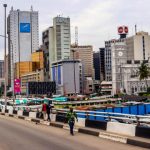As Nigeria celebrates fresh multi-million-dollar investments, the country is also witnessing a significant departure of multinational companies, driven by worsening economic conditions. A weak naira, rising inflation, high interest rates, and shrinking consumer purchasing power have made business operations unsustainable for many global brands.
Data from the Manufacturers Association of Nigeria (MAN) revealed that 767 manufacturing firms shut down last year, while 365 more experienced severe distress in 2023. Though small and medium enterprises bear the brunt, multinational corporations are not immune to Nigeria’s challenging economic climate. Below are notable companies that exited the market in 2024:
Kimberly-Clark (K-C)
Global personal care giant Kimberly-Clark exited Nigeria in June 2024, marking its second departure after a brief return in 2021 with a $100 million investment. The company reported a pre-tax loss of ₦1.1 billion in the first half of 2024, citing reduced margins and high borrowing costs. Persistent inflation and declining consumer purchasing power in the country further eroded its profitability.
Diageo
The alcoholic beverage powerhouse Diageo sold its 58.02% stake in Guinness Nigeria Plc to Singapore-based Tolaram Group in June 2024, signaling its withdrawal. While retaining ownership of the Guinness brand, the sale ended its direct operations in Nigeria. The company’s decision followed a reported loss of ₦61.7 billion for the nine months ending March 2024, a sharp contrast to the ₦5.9 billion profit recorded in the same period in 2023.
Holcim AG
Swiss building materials giant Holcim divested its 83.81% stake in Lafarge Africa Plc, selling to China’s Huaxin Cement Co. in a $1 billion deal. Holcim’s exit reflects its strategy to focus on the North American market, despite Nigeria’s massive housing deficit. The company’s departure underscores the declining purchasing power of Nigerian consumers and limited growth opportunities.
Equinor Nigeria Energy Company (ENEC)
After 30 years of operation, Norwegian energy company Equinor sold its 54% stake in the OML 128 oil and gas lease to Chappal Energies for $1.2 billion. The divestment is part of a broader trend among oil giants abandoning onshore operations in Nigeria due to challenges like oil theft and pipeline vandalism. Offshore ventures, free from these risks, are now the preferred focus for major oil companies.
The exit of these multinational corporations underscores the pressing need for Nigeria to address its economic instability. While the government touts new investments, the departure of global brands sends a worrying signal about the country’s business environment and long-term economic prospects.










